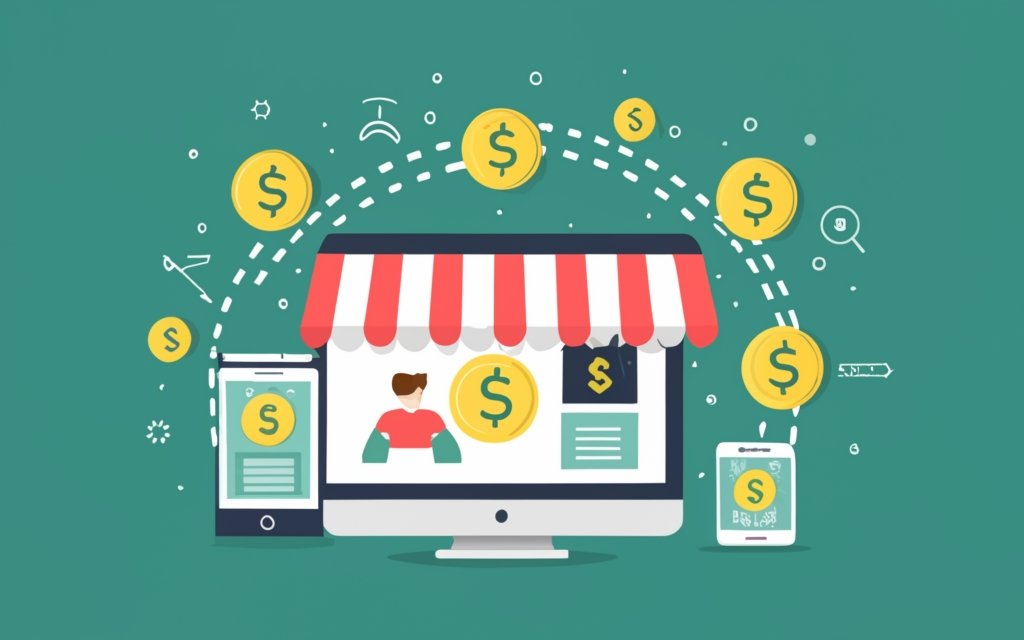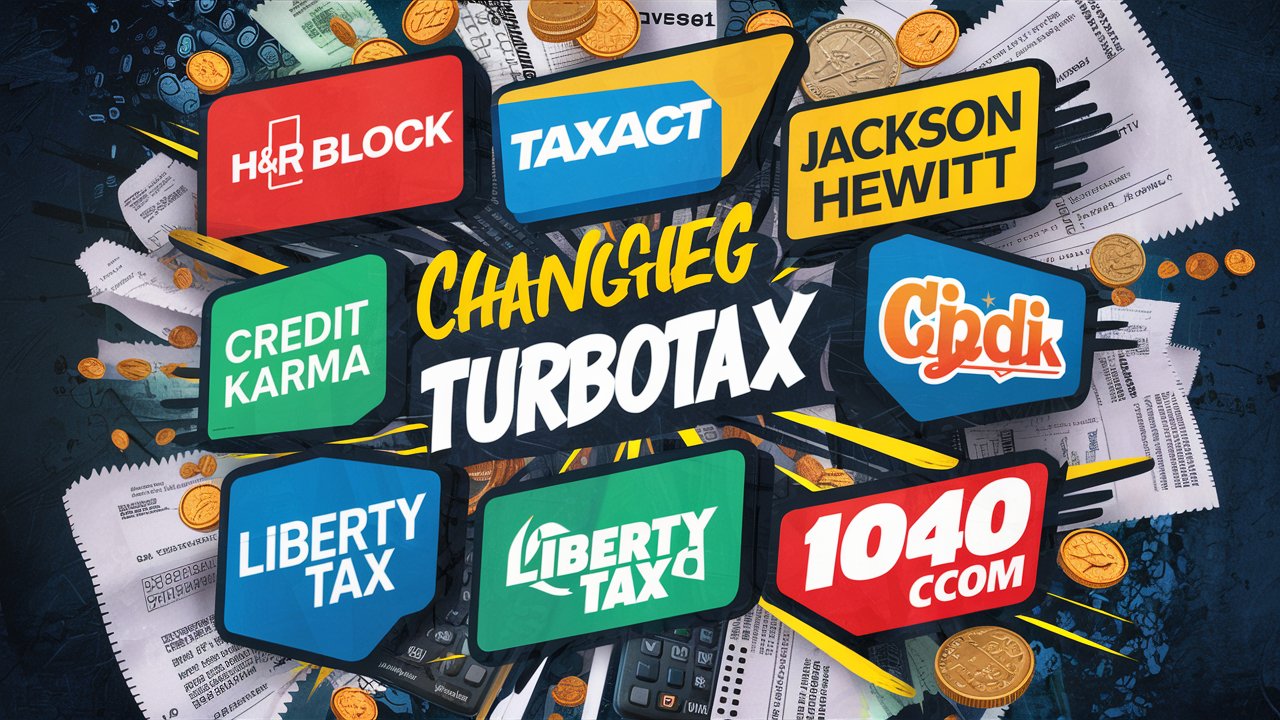Debt Management Plan (DMP):
One alternative to bankruptcy that often goes unnoticed is a Debt Management Plan (DMP). A DMP, offered through various credit counseling agencies, provides you with the perfect roadmap to navigate through the thorny patch of overwhelming debts – taking you from confusion and stress to an organized pathway towards debt-free peace of mind.
A DMP works by consolidating all your unsecured debts into one single payment plan, reducing both your interest rates and penalties. But it’s not just about getting all eggs in one basket. Here are some key benefits:
- – More control: You make a single monthly payment rather than multiple payments to different creditors.
- – Potentially lower costs: The credit agency negotiates on your behalf for lower interest rates or waiving of fees.
- – A clear end-date: Your repayment timeline becomes definitive helping you see light at the end of that long debt tunnel.
Thus, adopting a Debt Management Plan isn’t merely an exercise in financial shuffling; it’s a strategic move designed for anyone grappling with mounting debts but still maintaining enough income flow. It offers a structured payoff strategy while adding confidence to tackle whatever comes next – breathing fresh momentum into shaky financial grounds.
- Pros:
- Offers lower interest rates and monthly payments.
- Can help you avoid bankruptcy.
- Cons:
- May not be available to all debtors.
Credit Counseling:
Credit counseling: an alternative to bankruptcy worth considering. Laced with a blend of advice and financial education, it offers an opportunity for debtors to get back on track without plunging into the bottomless pit of insolvency. Credit counseling provides you a deeper understanding of your financial situation and equips you with the necessary tools to avoid falling back into debt.
In credit counseling, professionals work diligently to help clients come up with budget plans tailored to their income levels while ensuring they meet their monthly obligations. Devising payment schedules which suit individual needs is also part of this process.
- • improves money management skills.
- • avoids possible foreclosure.
- • creates reasonable payment plans.
Surprisingly, by reaching out for credit counseling you not only gain control over your finances but also gain emotional peace knowing there’s light at the end of the tunnel. An indeed potent remedy, credit counseling paves way towards a financially secure future whilst avoiding bankruptcy scars.
Pros:
- Provides free or low-cost financial counseling.
- Can help you develop a budget and manage your debt.
- Cons:
- May not be able to negotiate with creditors as effectively as a debt settlement company.
Debt Settlement:
Debt settlement: a powerful yet often misunderstood tool in the financial world. Rather than letting your debts spiral out of control, consider this one alternative to save yourself from bankruptcy and start on a path toward economic recovery.
Unbeknownst to many individuals, debt settlement offers an opportunity for creditors and debtors to meet halfway, effectively reducing the overall amount you owe. Not only does it halt proliferating interest rates which pile up over time but it also allows for a more manageable repayment plan tailored to your individual financial situation.
Consider these realities of choosing debt settlement:
– It’s not always sunshine; there will be an impact on your credit score.
– The possibility of owing income tax on the forgiven portion of your debt pushing you into a higher tax bracket.
– The potential challenges brought by aggressive collecting agencies.
Remember each financial situation is unique, therefore proper insight and counsel are crucial before making any decision. This alternative may just save you economically while ensuring you don’t lose everything in pursuit of solvency. Consider informing yourself further about this potential lifeline named debt settlement as part of building healthy alternatives to bankruptcy.
Pros:
Can significantly reduce your debt.
- Cons:
- May damage your credit score.
- May be difficult to qualify for.
Negotiation with Creditors:
One of the most proactive and less drastic alternatives to bankruptcy is negotiating with your creditors. While many people view this as an intimidating exertion, in reality, it is a practical approach that could result in reduced principle or lower interest rates on your debts. Engaging in negotiation shows your willingness to pay off your obligations, which can improve creditor relations while easing your financial burden.
When setting out for these negotiations, be candid about your circumstances. Clearly note down and convey the reasons for you falling behind on payments such as job loss, medical emergencies etc., providing any documentation necessary. Remember:
– Prepare a realistic proposal regarding repayment.
– Maintain clear communication.
– Follow up all calls with written correspondence.
By hunting carefully through the jungle of alternatives to bankruptcy, you would find that actively seeking such collaborations–negotiating directly with creditors–can lead to surprisingly successful outcomes. Not only does it pave way for potential reduction in debts owed but also helps maintain creditor-debtor relationships healthier than they would be following bankruptcy declaration.

Stepping into debt negotiation may seem daunting initially but taking small yet firm steps towards clear communication and commitment can make a big difference not only in getting out from under debt but also shaping one’s financial future constructively. It makes it worth considering before resorting to equally challenging measures like bankruptcy filing.
Pros:
Can reduce your debt payments without damaging your credit score.
- Cons:
- May be time-consuming and stressful.
- May not be successful with all creditors.
Balance Transfer Credit Cards:
One lesser-known alternative to bankruptcy that holds significant potential is the utilization of balance transfer credit cards. These handy financial tools can play a crucial role in managing and reducing high-interest debt. You might ask, how does it work? Quite simple, really – you transfer the balance of your existing card, usually with a higher interest rate, onto a new card offering lower (often 0%) introductory rates.
This strategy has some tempting benefits:
– Reduction of interest costs: Moving your debt from a high-interest card to one with an introductory low or no interest period can result in substantial savings.
– Simplifying payments: Having multiple credit cards often means juggling numerous bills each month. Consolidating this onto one card makes tracking payments easier.
– The possibility for accelerated debt repayment: With lower interest rates, more of your payment goes towards the principal rather than just covering the interest.
Of course, caution and due diligence are necessary when using such credit tools. Ensure you’re aware of any fees involved in balance transfers and always have a solid plan to pay off the debt before the promotional period ends. By making savvy use of balance transfer cards under these guidelines can offer breathing room and help avoid dire steps like bankruptcy.
With apt research and planning around this alternative solution, walking toward financial stability may not be as intimidating as it appears after all!
Pros:
Can offer 0% APR for a limited time period.
- Can help you consolidate your debt and save on interest.
- Cons:
- May have high balance transfer fees.
Home Equity Loans or Lines of Credit:
Turning our attention now to home equity loans and lines of credit, this financial product can be a lifeline in dire times. Both options allow homeowners to borrow against the equity they’ve built up in their property over time, often at interest rates lower than credit cards or traditional personal loans.
– **Home Equity Loans:** These work much like a second mortgage, offering you a lump sum at a fixed interest rate which you can repay over an agreed term. The predictable repayment scheme makes budgeting easier for many people.
– **Lines of Credit (HELOC):** A line of credit, on the other hand, functions similarly to a credit card. You’re approved for a maximum amount that you can draw upon as needed, often with variable interest rates. The flexibility of this option is particularly attractive if your cash requirements are intermittent or unpredictable.
However enticing these options may seem though, one must tread cautiously. Since your house serves as collateral, failure to meet repayment obligations could cost you your home – a result arguably even more financially devastating than bankruptcy itself! Explore these options with consideration and due diligence before diving headfirst into the world of home equity products.
- Pros:
- Can offer lower interest rates than credit cards.
- Can be used to consolidate debt or pay for large expenses.
- Cons:
- May put your home at risk if you cannot repay the loan.
Personal Loans:
Contrary to perennial misconceptions, personal loans can also serve as a viable alternative to filing for bankruptcy. If managed strategically, personal loans offer numerous advantages in steering you away from the insolvency complexity while minimizing damage to your credit score. For instance, they enable consolidating all of your high-interest debts into one manageable monthly payment at lower interest rates, which helps reduce financial stress significantly.
For those considering this lifebuoy and wondering where to start:
– Firstly, find a reputable lender and ensure that the loan amount suits your needs.
– Secondly, choose an affordable monthly installment – overburdening yourself will only exacerbate financial struggles.
– Thirdly, educate yourself about any potential fees attached such as late payment penalties.
In essence, using a personal loan as an alternative strategy necessitates both structuring and discipline; it is not simply about acquiring more funds but how you manage these resources effectively towards regaining control of your finances.
Remember: A stitch in time saves nine, acting promptly upon noticing signs of looming debt could negate the need for drastic measures such as declaring bankruptcy.
Pros:
- Can be used to consolidate debt or pay for large expenses.
- Cons:
- May have fixed or variable interest rates.
- May not be available to all borrowers.
Paycheck Advance or Car Title Loans:
In the quest for alternatives to bankruptcy, Paycheck Advances and Car Title Loans often emerge as tempting solutions. But how do they really stack up? Let’s delve into the nitty-gritty of these two financing options to give you a better understanding.
– Paycheck Advances
Put simply, paycheck advances are akin to borrowing against your own future salary. It’s money that you’re going into debt today from what you are supposedly earning tomorrow. While this may sound like a quick fix, it can become a vicious cycle hard to break out of if not managed correctly. Furthermore, extremely high APRs means it’s more costly than traditional loans.
– Car Title Loans
A car title loan is exactly what the name implies – using your car as collateral for a short-term loan. The pitfalls? Notorious high interest rates aside, failing to repay could mean waving goodbye to your vehicle entirely.
These options admittedly catch troubled consumers’ attention due to their swiftness in providing cash relief. Yet while they might appear as lifelines initially, plunging into them without caution could exacerbate financial situations rather than alleviate stress.
It’s always wise not just to focus solely on immediate relief but also consider long term financial stability and affordability before opting for any kind of debt-based solution.
Pros:
- Can provide quick access to cash.
- Cons:
- Very high-interest rates and fees.
- Can lead to a cycle of debt.
Family and Friends:
In navigating through the treacherous waters of financial struggles, family and friends often emerge as the unsung saviors. Their roles go beyond mere emotional support – they form an instrumental part of workable alternatives to bankruptcy.
Engaging your close-knit community when faced with crippling debt doesn’t mean asking everyone to dip into their retirement funds for you but rather exploring how their silent strengths can be harnessed to create a buffer in difficult times.
• Skill Exchange: You might have a cousin who’s a wizard at web designing and probably someone from your circle works wonders with penning down engaging content. Combining these skills, you could start a small side business offering web design services or writing blogs for clients; not only would this contribute towards debt payment but also strengthen familial bonds.
• Financial Counseling: A financially savvy friend could guide you through budget planning, helping identify areas where spending can be reduced.
• Interest-Free Loans & Favors: Borrowing from family or friends usually means less stringent repayment terms compared to banks or any credit card company.
Turning toward our family and friends may seem unconventional given we generally prefer keeping finances private; yet by creating effective communication channels, using their skills mindfully and embracing humility in accepting help allows us to bypass potential bankruptcy while bringing us closer than ever within these invaluable relationships.
Pros:
- No interest or fees.
- Cons:
- Can strain personal relationships if not handled carefully.
- May not be an option for everyone.
Employer-Sponsored Financial Assistance Programs:
Certainly! Your financial health largely influences your overall well-being, hence it’s crucial to consider all options before deciding on bankruptcy. A commonly overlooked option is Employer-Sponsored Financial Assistance Programs or ESFAPs. Imagine if your work became a source of not just income but also strategic financial assistance?
Under these programs, employers offer to shoulder part of employees’ debts or pay them off entirely. They aim at reducing stress levels among their workforce, ultimately contributing to productivity improvements in the long run.
– It could cover personal loans, student loans, mortgages – basically any form of debt that is causing you distress.
– In some cases, companies may even extend support for legal fees associated with negotiation and settlement processes.
So before you take the step towards bankruptcy, discuss this possibility with your HR department. This less considered alternative might be available in your organization and provide a less drastic solution towards managing your debt burden more effectively without further jeopardizing your credit rating.
Pros:
- May offer loans or grants to employees.
- Cons:
- Not all employers offer these programs.
Government Assistance Programs:
Navigating financial storms can be challenging, but it’s worth noting that bankruptcy isn’t the only escape route. There’s another viable option: government assistance programs. These programs are designed to protect and offer relief to ordinary citizens during tough times, providing a buffer against plunging headfirst into insolvency.
Understanding your eligibility for government assistance can be instrumental in shaping your financial future. For instance, programs like Temporary Assistance for Needy Families (TANF), unemployment insurance, or food stamps could help alleviate immediate pressures while you reconfigure a sustainable financial framework.
– TANF is intended to help special demographics such as families with children.
– Unemployment insurance provides temporary income replacement to eligible individuals who have lost their jobs due to reasons beyond their control.
– Food Stamps or Supplemental Nutrition Assistance Program (SNAP) offers qualified low-income persons with credits that they may use for buying groceries.
But government assistance doesn’t end there – explore options like Medicaid for healthcare costs or Low-Income Home Energy Assistance Program (LIHEAP) if coping with utilities has become too heavy a burden.

By employing the aid of these programs, you positively impact your situation without declaring bankruptcy. And ultimately, this could lead you down the path towards restoring stability one manageable step at a time – an alternative worth considering indeed!
Pros:
May offer loans or grants to low-income individuals.
- Cons:
- May have eligibility requirements and limited funding.
Earned Income Tax Credit (EITC):
The Earned Income Tax Credit (EITC) is without a doubt, an effective tool that can provide financial relief and make a significant difference in your life. It’s not just about reducing the amount you owe to the IRS – for many families and individuals, it’s about creating opportunities, overcoming financial adversity, and moving towards economic independence.
Imagine having extra money to pay off those overwhelming debts, invest in your future or simply raise your standard of living. That’s what EITC offers! This refundable tax credit primarily targets low-to-moderate-income working individuals and families. You might be wondering; how does this work?
* To qualify for EITC, you must have earned income from working for someone else or owning a business.
* The credit amount varies according to your income level, marital status and family size.
* Most significantly for those struggling with debt: if the credit exceeds the amount of taxes owed, it results in a tax refund!
EITIC claims may seem complicated due to its criteria complexity but with methodical monitoring of your earned income coupled with utilization of credible tax services –nothing feels better than seeing your bank balance grow while minimizing tax liabilities. Consider exploring this relatively undiscovered goldmine as an alternative before resorting to bankruptcy.
Pros:
- Can provide a tax refund of up to $6,935.
- Cons:
- Eligibility requirements and limited funding.
Credit Builder Loans:
Understanding the complexities of finances can, at times, prove daunting – but fear not! Credit Builder Loans emerge as an innovative solution for those looking to dodge bankruptcy and build a healthy credit score. Unlike traditional borrowing strategies, these loans give borrowers an opportunity to tailor their financial future positively without incurring immediate debt.
Renowned for empowering individuals with low or no credit score, Credit Builder Loans function like reverse loans. This means you don’t receive the borrowed funds upfront; instead, your loan is deposited into a secure account by the lender. You then make payments towards this amount over a specified period before accessing it in full — much like saving money:
– It’s risk-free: because you only access the money after it’s fully paid off.
– It helps build your credit score: All payments are reported to credit bureaus and timely payments improve your credit rating.
– It boosts financial discipline: By making consistent payments towards something beneficial.
Smart financing requires strategic planning. Seize control of your fiscal wellness by considering Credit Builder Loans today – it’s far from a conventional route but has its unique rewards awaiting those willing to venture.
- Pros:
- Can help you build credit history.
- Cons:
- May have higher interest rates than traditional loans.
Secured Credit Cards:
Secured credit cards are an incredible and adaptable solution to resolve fiscal mishaps. Acting like a safety net, these tools aren’t just for those with blemished or non-existent credit histories. For anyone seeking financial recovery and a means to build solid fiscal footing without declaring bankruptcy, this might be the route to consider.
An intriguing feature of secured credit cards is their requirement for cash collateral prior to use, typically ranging from $200-500. This upfront payment serves as your line of credit and protects the lender— essentially like buying your own loan security. However, unlike prepaid cards, however, monthly reports are sent to major Credit Bureaus allowing you to gradually restore your standing:
- – allows you set spending parameters.
- – boosts borrowing power over time.
- – safeguards lenders against late or missed payments.
Embracing secured credit cards not only offers a guide towards more responsible financial behavior but unveils avenues for restoring one’s economic confidence without descending into bankruptcy. Who knew turning around financially could look so good?
Pros:
- Can help you build credit history.
- Cons:
- Require a security deposit.
Prepaid Debit Cards:
Prepaid debit cards offer a unique, flexible, and effective alternative to bankruptcy. They serve as an easy tool for managing finances without the risks associated with credit card debt or burdensome standard banking fees. Prepaid cards allow you to have full control over your spending by only enabling you access to the funds that you choose to load on them – essentially like holding digital cash.

Interestingly enough, prepaid debit cards act both as a financial restraint and an empowerment device. Think about it – loading money onto these cards is a formal step of being committed to stay within a set budget and curbing any impulsive shopping instincts.
Additionally, since they don’t necessitate credit checks or carry the risk of overdraft fees, prepaid debit cards offer equal opportunities for all economic levels while ensuring sound financial practices.
- – No more worries about overspending.
- – Easily accessible without credit checks.
- – Helps you own your budget.
- – No risk of overdraft charges.
It’s evident that incorporating prepaid debit cards into your financial strategy could be a game changer when avoiding bankruptcy is high up on your list.
Pros:
- No credit check required.
- Cons:
- May have fees and may not be accepted everywhere.
Budgeting and Saving:
Many find the topic of budgeting and saving both intimidating and overwhelming, but it doesn’t always have to be complicated. In fact, establishing a concrete plan for your finances can actually provide a sense of freedom as you become aware and in control of your monetary resources.
Becoming financially literate involves understanding where your money comes from, how it’s saved or invested, and how you spend it. This might seem daunting at first, considering our society’s general reticence about discussing money matters openly but remember – knowledge is power!
Just imagine: having peace of mind every time bills are due because the necessary funds are already allocated; taking that desired holiday without worrying about financial backlash on return; or witnessing that ambitious home renovation project come to life. All these become achievable when budgeting and saving becomes part of your lifestyle.
- * Identify income sources: account for every cent flowing into your pocket.
- * Track spending habits: understand where exactly is the outgoing flow.
- * Set realistic goals: this could range from small-scale purchases to hefty investments like real estate.
- * Adopt frugal living practices: unnecessary expense cuts can significantly bolster savings.
- * Regularly review progress: adapt plans as income increases/decreases or priorities shift.
Remember, adopting budgeting isn’t about restraining yourself to a stingy life but rather enabling informed decisions capable of striking balance between instant gratification and long-term benefit! With consistency and discipline, bankruptcy could soon be an unfathomable word in your financial vocabulary!
Pros:
- Can help you avoid bankruptcy in the future.
- Cons:
- Requires discipline and may take time.
Negotiating with Creditors:
Negotiating with creditors is an alternative route worth exploring if you’re under a mountain of debt. Quite often, creditors would prefer to receive some repayment rather than facing the possibility of getting nothing, in case you file bankruptcy. They may be open to negotiation and this could minimize the dip into financial hardship.
Successful negotiation hinges on strategic communication and understanding your creditor’s motivations. Don’t approach your credit card company until you have thoroughly analyzed your financial situation and have a clear picture of what can be reasonably repaid without perpetuating the cycle of incurring more debt.
• Determine beforehand how much you can afford for repayments before heading into negotiations.
• Be honest about your situation, but remember, empathy wins over desperation.
• Propose a win-win scenario; express an intention to repay while asking for lower interest rates or longer loan terms.
Remember that every step towards debt management is progress – no matter how small it might seem. Negotiating with creditors not only fetches potentially better repayment terms but also grows your confidence in handling financial matters moving forward. This exercise helps equip you with better personal finance skills that stay even after the debts are gone – truly, a silver lining amidst dark clouds!
Pros:
May be able to reduce your debt payments.
- Cons:
- Can be time-consuming and stressful.
Debt Consolidation:
Debt Consolidation: A path to Financial Stability.
In your financial journey, debt consolidation can become not just a lifeline but a stepping-stone towards better fiscal health. Imagine combining all your high-interest debts including credit cards, student loans or even medical bills into one single lower monthly payment with a reduced interest rate. This amalgamation of debts can potentially save you thousands in interests and relieve the overwhelming sensation of being buried by multiple payments.
- – Embraces all kinds of debts: Transform various types – and rates – of liabilities including personal loans into one unique manageable debt.
- – Lower monthly commitments: It allows us to simplify our budgeting efforts while easing off the devastating financial pressure each month.
Let’s delve into an unexpected advantage; debt consolidation can provide an opportunity for introspection and exercise control over money habits. Escaping from numerous creditors will lift emotional burden, strengthen resilience, streamline payments giving room to breathe financially.
Combined with a determination to change poor spending habits, it unlocks the potential for long-term financial stability. As we explore alternatives outside bankruptcy, remember that consolidation is more than reduction and simplicity – its core is woven with opportunities for growth and transformation.
Always review your options carefully before proceeding simply because ‘no size fits all’. Consultation from professionals helps evaluate measures against unique circumstances ensuring benefits are maximized in this personal finance restructuring journey.
Pros:
- Can simplify your debt payments and potentially lower your interest rate.
- Cons:
- May have fees and may not be available to all borrowers.
Legal Aid:
In a world where financial difficulties often hit hard, legal aid serves as a beacon of hope for many. Not only does it address the immediacy of debt problems, but also provides an alternative route to bankruptcy, thereby leaving room for future growth and economic recovery. Legal aid is not just about giving advice but equipping individuals with an understanding of how to navigate complex financial landscapes.
Legal aid offers different services that can be beneficial when teetering on the brink of bankruptcy such as:
- – Debt management plans: This involves negotiating with creditors to restructure your debts into affordable payments.
- – Raising court defenses: In instances where creditors have sought legal action against you.
- – Negotiation settlements: Legal professionals may negotiate reduced settlement amounts with your creditors.
Engaging professional help via legal aid helps lay bare various strategies you may not have considered before. Such alternatives serve as lifelines enabling people to regain control over their finances without resorting to bankruptcy. Remember, while there’s life, there’s surely hope – this truism extends even into our financial lives!
Pros:
Can provide free or low-cost legal assistance.
- Cons:
- May have limited availability.
Consumer Protection Agencies:
In the wave of economic uncertainties, Consumer Protection Agencies (CPA) strike as financial life buoys. These agencies have a crucial role to play, as they exist to ensure fairness in the marketplace and guard against manipulative and misleading business practices. They are essentially your armour during financial distress; stepping into their sphere enables you to receive protection from illegal or deceitful actions by businesses or creditors.
One remarkable aspect about CPAs is their extensive reach – local, state-level, and federal agencies come under this category. They operate through several mechanisms including:
- – Educating consumers about rights and responsibilities.
- – Resolving individual consumer complaints against businesses.
- – Instituting sector-wide investigations where fraud is suspected.
- – Enforcing law provisions via fines and sanctions.
Tapping into the resources of CPAs can provide an alternative solution for those at monetary crossroads and could potentially obviate the need for declaring bankruptcy. It remains vital that we explore these avenues before making drastic decisions which may have long term implications on our financial future.
Pros:
Can help you file complaints against creditors.
- Cons:
- May not be able to resolve all disputes.
Conclusion.
In conclusion, bankruptcy should be seen as a last resort due to its long-lasting effects on one’s financial health. Options such as debt consolidation, credit counseling, debt settlement, and even negotiating with creditors can provide viable alternatives. It’s imperative for anyone facing significant debt to explore these avenues thoroughly before making a decision.
Each has its own benefits and drawbacks; therefore, it is crucial to determine which will be most beneficial for your unique circumstances. Take charge of your financial future today by seeking professional advice and making an informed decision that best suits your situation.
You should read another article i wrote about >>>> Alternatives to Getting a Payday Loan and Pros and Cons to learn more.
I am commitment to crafting compelling narratives and delivering insightful content continues to inspire and inform readers across various platforms. Explore her articles on AlternativesZone.com and FactAfterFact.com to experience a rich tapestry of knowledge and discovery. Here I Analyze and Test the products and services together with my team before we recommend them to our users. Nice Reading Here!











